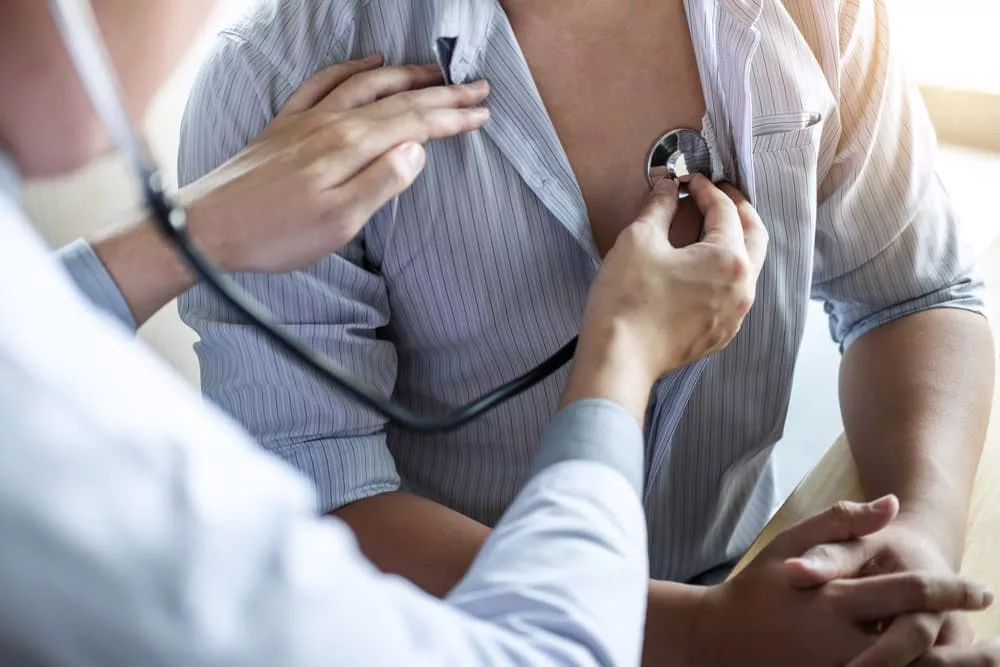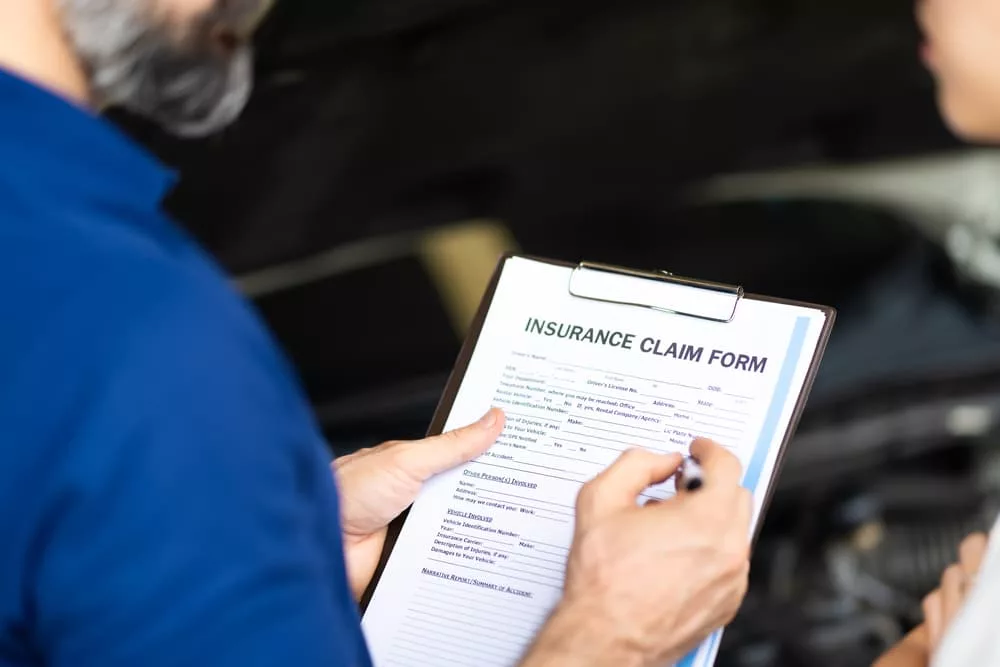Why Do I Need a Medical Exam if I Feel Uninjured After a Car Accident?

Should you need assistance with your medical care, your car accident attorney can assist and give you qualified direction.
Schedule a Free Initial Consultation Today!
Car Accidents Often Result in Injuries, Even If You Don’t Realize It Right Away
Car collisions happen all over the U.S. every single year, with a large number of them ending in physical harm to the parties involved. In a recent year, motor vehicle collisions caused 5.4 million medically consulted injuries, with the total cost of these injuries reaching almost $500 billion.
Unfortunately, not everyone feels car accident injuries immediately after an accident. This is one reason why collision victims fail to seek medical care right away. In reality, waiting can actually worsen existing injuries, resulting in a need for greater medical care in the future.
How the Body Naturally Reacts to Traumatic Events Like Auto Collisions
Car accidents are tense, overwhelming events. One physical response is the release of endorphins, which act as painkillers. This endorphin release can mask symptoms of your car accident injuries you’d otherwise feel.
It may take hours or even days for your body to begin to feel the effects of your collision injuries. When you finally do start to feel your injuries, they may have worsened, which can easily result in complications.
Because of the way the body naturally reacts to events like auto accidents, get medical attention as quickly as possible, regardless of how you feel at the moment. Getting medical care can reveal answers about your physical health and allow you to begin your healing quicker.
Common Injuries Resulting from Car Accidents
Car accidents can result in a wide variety of injuries. The injuries you sustain and their severity depend on the type of accident you experience and the force of impact.
The following are some of the most common kinds of car accident injuries.
Fractures
Breaking a bone is a particularly common occurrence in an accident. Just about any bone in your body can break if you’re in a collision, but most often, the bones in the arms and legs and the ribs are most likely to break.
You can’t usually see a broken bone unless it’s particularly severe and protruding. Therefore, adrenaline can distract you from the pain enough that you don’t even realize you’ve fractured any bone.
Neck Injuries
Several parts make up the neck, including bones, muscles, tendons, ligaments, joints, and nerves. A neck injury can involve injury to any of these.
The neck is likely to suffer injury in an accident, especially if the neck is unsupported at the time of the collision. Common neck injuries include whiplash, neck fractures, and pinched nerves.
Traumatic Brain Injuries
A traumatic brain injury (TBI) can cause extensive, long-term damage. This type of injury usually occurs from a significant blow to the head or neck that shakes and rattles the brain.
Some of the common kinds of TBIs include:
- Concussions
- Hematomas
- Hemorrhages
- Diffuse Axonal Injury (DAI)
While some brain injuries show symptoms right away, others may not exhibit signs for days or even weeks. The brain is a critical but fragile organ, so get medical attention right away to avoid potential complications of these injuries, like permanent cognitive issues.
Spinal Cord Injuries
The spinal cord runs from the base of the brain to the lower back. The spinal cord sends signals from the brain to the rest of the body and. Back Injury can occur along any part of the spinal cord, and depending on the location and severity of the injury, you can face serious issues, including paralysis, exaggerated reflexes, and trouble breathing.
Spinal cord injuries aren’t always obvious. You may begin to develop symptoms days after your car accident, which can contribute to the worsening of your physical health.
Internal Injuries
Internal injuries typically involve bleeding internally. When you suffer a significant blow to any part of the body, it can crush or tear blood vessels.
Internal injuries are most common in:
- Kidneys
- Liver
- Lungs
- Spleen
- Stomach
- Diaphragm
Because you can’t visually see the injury as it is happening internally, you can inadvertently make the injury worse and increase the chances of further complications.
Many Injuries Worsen Without Prompt Medical Care
Always get medical treatment immediately after a car accident. Still, if you don’t feel any physical pain and believe you’ve walked away unscathed, you may have injuries you don’t treat for several hours or even days.
Unfortunately, many injuries, like brain injuries and internal injuries, tend to get worse if you fail to get the appropriate medical treatment. Getting medical care right away can significantly help prevent the worsening of these injuries and can also avoid life-altering changes to your physical or mental health.
Why Seek Medical Attention After a Collision?

Accepting care has several benefits. Not only will you put your health first, but you’ll also help your future compensation claim.
Prioritizing Your Physical Health
Always strive to put your physical health first. Even if you initially feel uninjured, seeking medical care ensures you understand the full extent of your injuries and can receive the appropriate treatment.
Failing to get a medical exam at all may hurt your well-being in the long run. The sooner you get checked out, the more of a chance you’re giving yourself of fully recovering from your accident injuries.
Compiling Medical Documentation
Most accident victims don’t realize the strong impact medical records have on a collision claim. In your claim, you’ll ask for certain damages, including medical expenses. Without compelling documentation, you’re less likely to receive the fair compensation you’re entitled to.
Not only is seeking medical attention important but so is following through with your recommended medical treatment. Should you abandon your treatment midway through or not start any treatment at all, this can communicate to the insurance company your injuries are not as bad as you claim.
Your car accident attorney can use your medical documentation, including records and bills, to add to the value of your claim and negotiate the fair settlement you deserve.
How Doctors Diagnose Accident Injuries
Doctors have a thorough understanding of the human body. They know what to look for when you go see them after an accident. They can look into your medical history, conduct thorough examinations, and order tests to get a better picture of the status of your physical health.
Medical History
Believe it or not, medical history plays a big role in diagnosing your accident injuries. For this reason, most healthcare providers start by getting your full medical history. They’ll ask you questions and determine the information pertinent to your diagnosis.
Getting your health history can help doctors decipher between any preexisting conditions and any new injuries or conditions that have developed thanks to your accident. Additionally, they can also figure out if your collision injuries have exacerbated any condition already present at the time of the crash.
Physical Examination
Your medical provider can examine you from top to bottom to check for any injuries. They know what tactics and maneuvers to check for certain injuries, including those unseen, like internal injuries.
Based on the results of your physical examination, it may be sufficient to provide a diagnosis. Otherwise, they can order medical tests to confirm or deny their findings and make added discoveries regarding your physical health.
Diagnostic Tests
Doctors often rely on a variety of diagnostic tests to give them answers regarding their patients’ health. You will not know whether you’re suffering from certain injuries without taking a closer look, and medical tests can provide the last puzzle pieces your physician needs to give you a proper diagnosis.
Tests often used to diagnose car accident injuries include:
- X-rays: X-rays are typical tests to look at your bones, as some fractures are subtle and go unnoticed without proper imaging. They can help decipher whether you’ve suffered broken bones and the severity of fractures.
- CT Scans: Computed tomography, also known as CT or CAT scan, combines a series of X-ray images to create cross-sectional images showing bones, soft tissue, and blood vessels. It can provide more specific imaging than just X-rays alone.
- MRIs: Magnetic resonance imaging (MRI) offers an excellent way to take detailed images of your internal anatomy. It can provide much-needed answers regarding your injuries, allowing you to receive adequate treatment.
- Ultrasounds: Ultrasound technology uses sound waves to see inside the body in real-time. It allows doctors to see many different types of abnormalities or injuries to provide a correct diagnosis.
- Blood panels: Blood tests are common to identify certain health conditions, like vitamin deficiencies, but they can also tell doctors whether you suffer from an injury or complication, for example, an infection stemming from an injury.
If your doctor recommends you get medical testing, do it. A full workup can give you in-depth information concerning your physical health and allow you to begin your healing journey that much faster.
When To Get Medical Care Following a Car Accident
After a collision, do not wait to get a medical exam. Even if you don’t accept any treatment at the scene of your accident, follow up with a doctor no later than a day or two after the collision.
Visit an emergency room or make an appointment with your primary care physician. Allowing a qualified healthcare provider to examine you can yield much-needed answers quickly, letting you take care of your physical recovery and get started on your collision claim.
A Medical Exam Is One of the First Steps on the Road to Financial Recovery After a Collision

Make your physical health and well-being your top priority. Therefore, following a car accident, get a medical exam, even if you don’t believe you suffered any injuries.
Then, once you receive medical care, consult an experienced car accident attorney. A lawyer can represent your best interests throughout your case and get you the most beneficial outcome.
Make medical care and protecting your physical health your first priority following a crash. Never underestimate possible injuries, as they can arise and cause serious pain and limitations in the days or weeks after an accident. Then, seek legal assistance from a personal injury lawyer to begin protecting your rights.
Related articles
Related articles Related articles Related articles Related articles Related articles Related articles Related articles Related articles Related articles Related articles
Car Accident
18 Jan 2024
Who Is Liable if a Road Hazard Causes a Car Accident?

Car Accident
16 Jan 2024
How to File a Car Accident Claim as a Passenger



